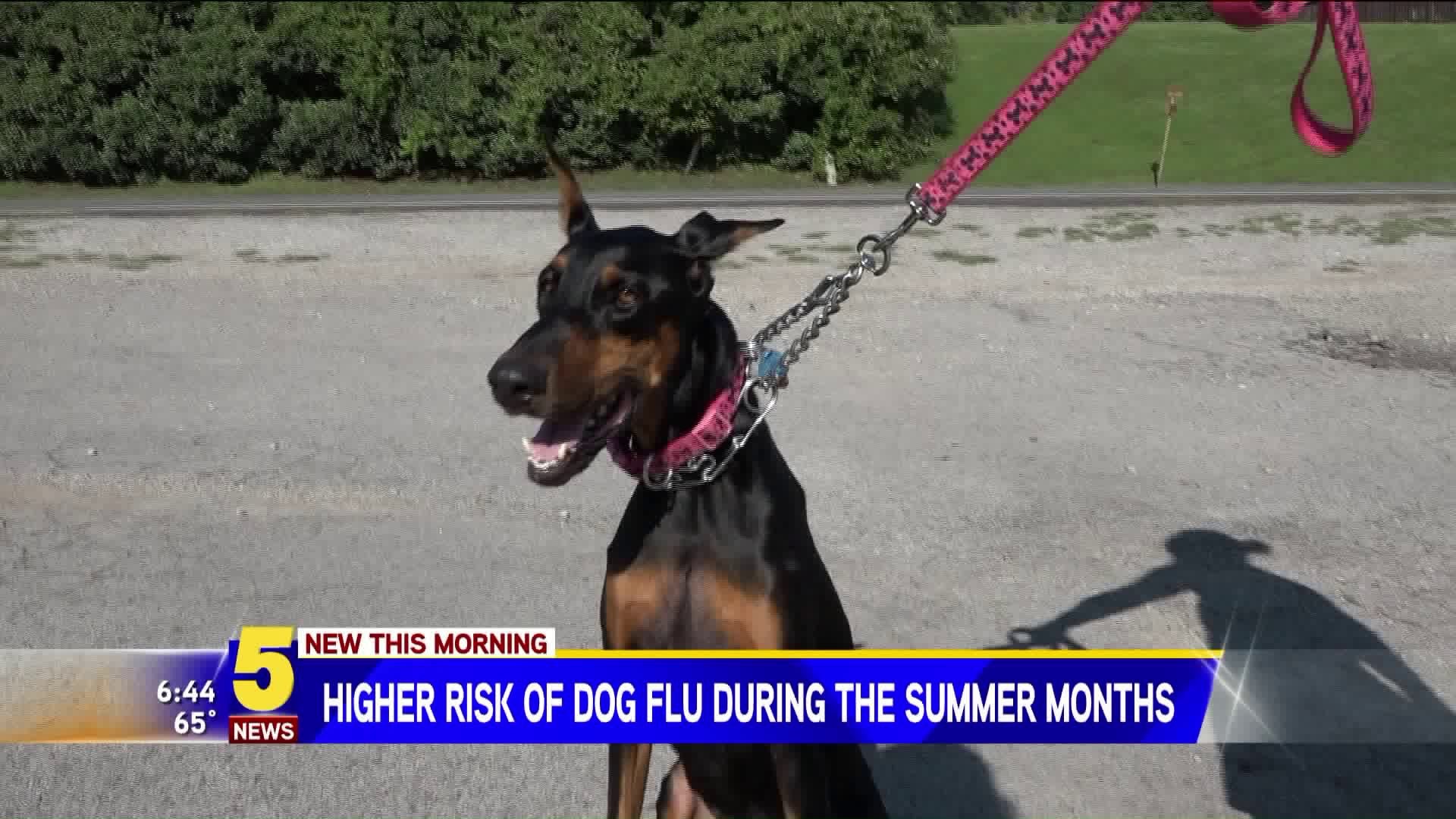ARKANSAS/OKLAHOMA (KFSM) -- We usually don't think about getting sick during the summer, but this time of year is when our furry friends are most prone to diseases like dog flu.
"I had no idea they could get the flu," said Lori Coll of Fort Smith. Coll and her 4-year-old dog, Roxie, just moved to the Natural State from Texas.
Before she made the big move, she took Roxie to a vet where she first learned about canine influenza. "I've had dogs all my life and still had no idea," Coll said.
Dr. Rachel South is a veterinarian at the River Valley Animal Hospital and said dog flu is most commonly spread when they're kept in kennels or shelters. However, it can also happen if you bring your furry friend to the dog park.
Dogs are more likely to get the disease during spring and summer time since that's when they're the most social with other dogs.
Signs to look out for:
- Coughing.
- Sneezing.
- Variable fever.
- Clear nasal discharge that progresses to thick, yellowish-green mucus.
- Rapid/difficult breathing.
- Loss of appetite.
- Lethargy.
Dr. South said the symptoms are similar to those we experience when we get the flu.
To avoid spreading the canine flu, Dr. South said cleanliness is key. "It can live in the environment and on your clothing and thing they've touched for up to 48 hours or so," said Dr. South.
Dr. South said people who have been in contact with an infected dog should wash their hands and clothes to avoid spreading the virus and take the animal to their local vet for treatment. They also warn to never take treatment into your own hands by giving your pet cold and flu medicine for humans, as this could be toxic to them.
Dog flu shots can run anywhere from $25 to $60. They last a year and are offered by most local veterinarians.
Although dog flu cases are higher during the warmer months, the risk is always there for dogs to get the virus year around. Cats are also at risk, and the symptoms for felines are the same as with dogs.
Vets also said Bordetella or "kennel cough" can sometimes be confused with dog flu, but the two are different diseases with different vaccines and treatments.
To learn more about dog flu, click here.

